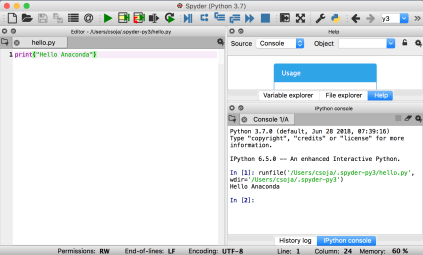Let’s talk about Integrated Development Environment and why you need one for your studies. I realized that many non engineering oriented studies teach some coding oriented classes and promote some programming activities among students. However, most of the activities tend to be very basic and the code required for delivering the foreseen assignment(s) is relatively small. This approach tend to promote the believe that “programming is easy” and that can be done with your text editor and a couple of command lines for compiling your code.
This maybe be sufficient for deliver one or two assignments but is far from been what is used in “real life” for delivering successful projects. Imagine that the project that need to be delivered to your client is about 100.000 lines of code organized in 5.000 files and you are working at it with 5 colleagues that have all different experiences and background. Do you think that a text editor will be sufficient for handling this complexity?

Eclipse: Integrated Development Environment (IDE)
" data-orig-size="385,258" sizes="(max-width: 385px) 100vw, 385px" aperture="aperture" />Eclipse: Integrated Development Environment (IDE)The answer is: it is simply impossible. This is the reason why disciplines like software engineering exist and offer some of the most payed jobs to its practitioners. You probably start learning to program writing procedures, or sequence of actions that the computer should perform for you. However, “real life projects” use Object Oriented Programming (OOP) as basic framework for ensuring that the code can be read and maintained by large groups of developers.
You may be not interested in learning the intricate details of software development. However, some of the tools that a software engineer use may simplify your life and facilitate the development of the “few lines of code” that you have do deliver. This is the case of what is called Integrated Development Environment or IDE in short. You can consider this as a collection of tools that are used for facilitating the development of code.
Normally each language has his own IDE. For example, if you are a JAVA developer you will probably use Eclipse. If you are a Python developer interest in data science related project you will probably consider Anaconda.
Your university may not actively promote the use of an IDE for several reasons. Some of the includes:
- The automation fostered by this approach will bring you “far from the metal” and will not let you appreciate how things works.
- The learning curve is too slow. In other words, you will spend more time learning the details of an IDE instead of learning the topics of the course.
- Text based programming will help you developing a good set of habits.

Anaconda: Integrated Development Environment (IDE)
" data-orig-size="1718,1040" sizes="(max-width: 423px) 100vw, 423px" aperture="aperture" />Anaconda: Integrated Development Environment (IDE)However, independently of the reasons for not using an IDE my suggestion is to try to familiarize with one. If not for your classes, you may want to consider using it for your thesis. You can consider the initial time that you will spend learning the tool(s) as an investment that will pay off during your thesis.
If you like this idea you can find in these articles you can find a few tips and suggestions on how to set up your IDE for particular projects:
- IDE for Python in data science related projects
- IDE of JAVA for Distributed Applications and Service Oriented Architecture
In case you are not familiar with OOP, you may find this article useful for familiarize with the concepts:
The use of a proper Integrated Development Environment ( #IDE ) will help you in becoming a #programmer that is familiar with Object Oriented #programming
Click To Tweet
